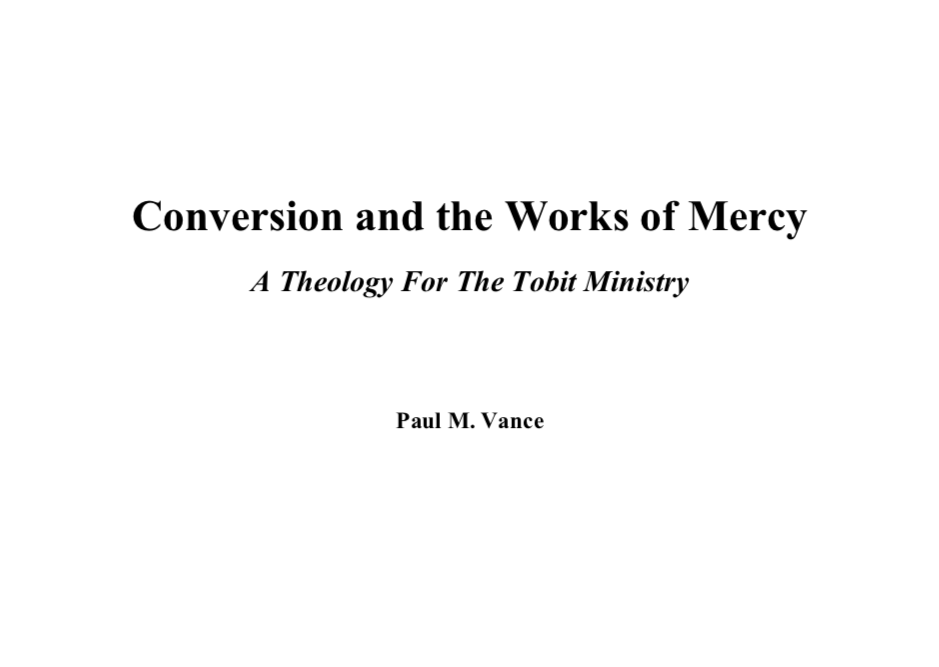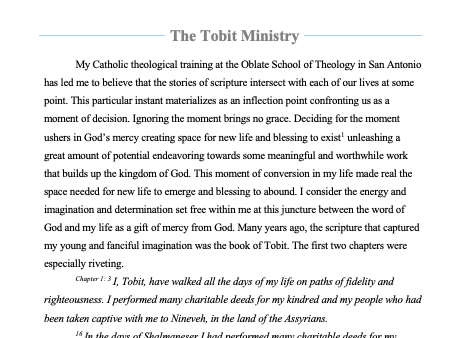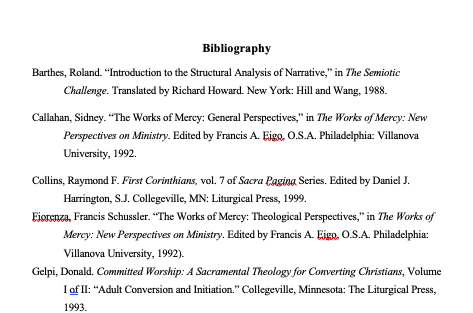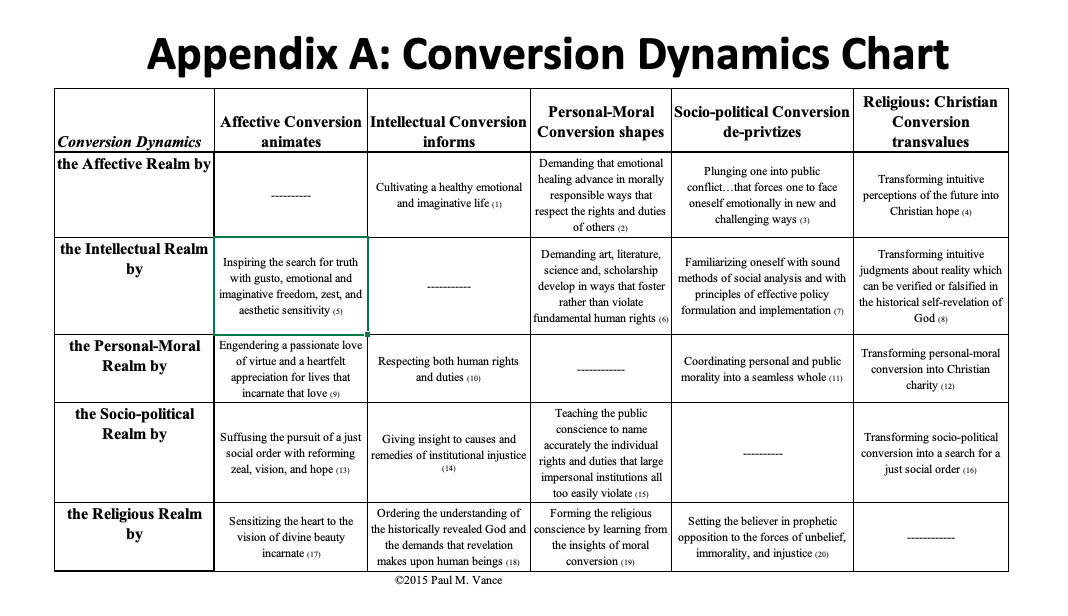
The Tobit Ministry fuses together the experience of mercy, story and resurrection in such a way that fosters an emergent conversion in those who visit The Tobit Garden. The dynamic interplay of the five forms of conversion is complex. However, when transvaluation through Christian faith occurs within the context of The Tobit Ministry, the visitor to The Tobit Garden begins a reevaluation of what is known in the light of another frame of reference. Mark’s gospel establishes the overarching priority of conversion to and faith in Jesus if one is to experience the kingdom of God. Theologically, conversion and faith also enable one to be demonstrably socialized into the Family of God by sharing material gifts and spiritual gifts. The faith experience is predicated upon the paschal mystery of Jesus Christ, especially the resurrection.
The first letter to the Corinthians emphasizes without the reality of the resurrection any and all faith in Jesus is useless. Through the conversion process encountered in stories told and the work of mercy actualized in The Tobit Garden,
Christian hope transforms natural human hopes by rooting them in the person of Jesus and in the paschal mystery…commitment to Jesus Christ in global faith also dedicates one to the work of realizing God’s kingdom on earth as in heaven. Commitment to the kingdom makes Christian hope practical and gives it its proximate goals. The paschal mystery orients Christian hope toward transcendence and toward ultimate realities: life with Christ in God after death. As Christians, we hope to share in Jesus’ risen glory.
Story is a critical element to the mission of The Tobit Ministry. Each person buried in The Tobit Garden has their story permanently presented for the visitor to read. It is juxtaposed with a gospel story to be read alongside the buried person’s personal story. Encountering the stories offers the true identity of the child of God. To bury someone without making their story alive keeps them in anonymity. Reading their story helps the reader to relationally wake up to the reality that each person is deeply storied in the mind of God. The burial of someone unknown is a travesty and is contrary to the dignity that God endows upon each person. Their story testifies to this truth.
The key to conversion in The Tobit Garden is the work of mercy itself. The reality of our action in the work of mercy orients us toward God. Our merciful action is the overarching framework within which faith becomes possible as the two stories come together.
Metaphor consists in bringing two sets of ideas close together, close enough for a spark to jump, but not too close, so that the spark, in jumping, illuminates for a moment the whole area around, changing perceptions as it does so. Even so, the subversive story comes close enough to the story already believed by the hearer for a spark to jump between them; and nothing will ever be quite the same again.
Metaphorically speaking, the spark is the gift of faith from God. The concrete experience of the work of mercy of burying the dead enlivens the subversive nature of story as faith transvalues our worldviews through the inviting call of the light of the resurrection. In his mercy, then, God begins the creation of new space for new life and blessings within the very being of the visitor. For the young boy reading Tobit, the dynamic interplay between the character of Tobit, the relationship with people without homes, and the resurrection converged into a moment of decision. Deciding to step out in faith, the merciful gift of space for new life and blessing manifested itself in The Tobit Ministry as it tells the story of those outside the wall who move from life to death to Life.
Footsteps in Theology
A Practical Application of Narrative in Transformative Catechesis
Click the images below to read Dr. Paul M. Vance's Dissertation



